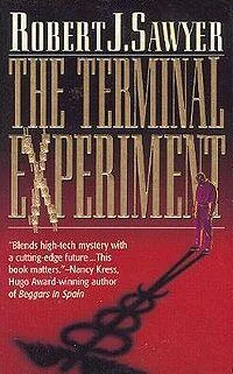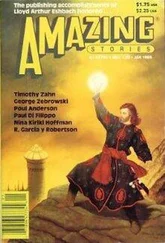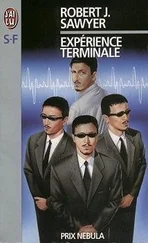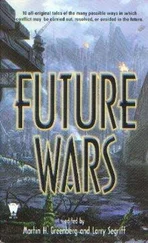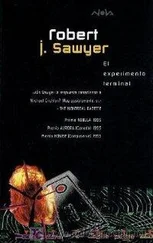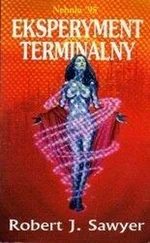“Why are they afraid?” asked Sandra, genuinely curious.
Miller spread her arms. “Think about it, Detective. Suppose I told you that for most of your life your ability to function had been severely impaired. Now, for a young person like yourself, you’d probably want that fixed — after all, you’ve got decades ahead of you. But older people very often refuse to believe they’ve been suffering from clinical depression. The regret would be too much to bear — the realization that their lives, which are now almost over, could have been so much better and happier. They prefer to shut out that possibility.”
“But not Churchill?”
“No, not him. He was a Phys. Ed. teacher after all — he taught high-school health classes. He accepted the idea and was willing to try the treatments. We were both upset when the reversible inhibitors didn’t work for him, but he was game for trying phenelzine — and he knew how important it was to avoid the wrong foods.”
“Which are?”
“Well, ripe cheese for one. It’s full of tyramine as a breakdown product of the amino acid tyrosine. He also couldn’t eat smoked, pickled, or cured meats, fishes, or caviar.”
“Surely he’d notice if he was eating any of those things.”
“Well, yes. But you also get tyramine in yeast extract, brewer’s yeast, and meat extracts such as Marmite or Oxo. It’s also in hydrolyzed protein extracts such as those commonly used as a base for soups, gravies, and sauces.”
“Did you say gravies?”
“Yes — he should have avoided them.”
Sandra fished in her pocket for the small, stained slip of newsprint — the receipt from Food Food for Rod Churchill’s last supper. She handed it across the glass desktop to Dr. Miller. “This is what he ate the night he died.”
Miller read it, then shook her head. “No,” she said. “We talked about Food Food the last time he was in. He’d told me he always ordered their low-calorie gravy — said he’d checked and that it was free of anything he was supposed to avoid.”
“Maybe he forgot to specify low-cal,” said Sandra.
Miller handed back the printout. “I doubt that, Detective. Rod Churchill was a very meticulous man.”
Ten minutes early, Becky Cunningham arrived at Carlo’s. Peter got up. He didn’t know what kind of greeting to expect: a smile, a hug, a kiss? Turned out he got all three, with the kiss being a lingering nuzzle of his cheek. Peter was surprised to find his heart racing slightly. She smelled terrific.
“Petey, you look wonderful,” she said, sitting down in the chair opposite him.
“So do you,” said Peter.
Actually, Becky Cunningham had never been what one would call a beautiful woman. Pleasant-looking, yes, but not beautiful. She had shoulder-length dark brown hair a bit shorter than was the current style. She was twenty pounds heavier than a fashion magazine would call ideal, or ten pounds more than what any less severe arbiter would suggest. Her face was broad, with archipelagoes of freckles on both cheeks. Her green eyes positively twinkled when she talked, an effect enhanced by the network of lines at their corners that had appeared since Peter had last seen her.
Absolutely wonderful, thought Peter. They ordered lunch. Peter took the receptionist’s advice and had the tortellini. They talked about all sorts of things, and there was as much laughter as there were words. Peter felt better than he had for weeks. Peter picked up the tab. He tipped twenty-five percent, then helped her put her coat on … something he hadn’t done for Cathy in years.
“What are you going to do until your flight leaves?” asked Becky.
“I don’t know. Sightsee, I guess. Whatever.”
Becky looked into his eyes. This was the natural parting point. Two old friends had gotten together for lunch, caught up on old times, swapped stories of various acquaintances. But now it was time to go their separate ways again, get on with their separate lives.
“I don’t have anything important to do this afternoon,” said Becky, still looking straight into his eyes. “Mind if I join you?”
Peter broke her gaze for a moment. He couldn’t think of anything he wanted more in the world. “That would be—” and, after a brief pause, he decided not to censor himself, “perfect.”
Becky’s eyes danced. She fell in beside him and tucked her arm through his. “Where would you like to go?” she said.
“It’s your town,” said Peter with a smile.
“That it is,” said Becky.
They did all the things that hadn’t interested Peter earlier. They saw the changing of the guard; they visited some little boutiques, the kinds of stores Peter never went into in Toronto; and they ended up by ambling through the dinosaur gallery at the Canadian Museum of Nature, marveling at the skeletons.
It was just like being alive, thought Peter. Just like the way it used to be.
The Museum of Nature was, appropriately enough, on a large, well-treed lot. By the time they left the museum, it was around five o’clock and getting dark. There was a cool breeze. The sky was cloudless. They walked across the grounds until they came to some park benches beneath a stand of huge maple trees, now, in early December, devoid of their leaves.
“I’m exhausted,” Peter said. “I got up at five thirty this morning to get the flight here.”
Becky sat down at the far end of the park bench. “Lie down,” she said. “We’ve been walking all afternoon.”
Peter’s first thought was to resist the notion, but then he decided, why the hell not? He was just about to stretch out on the remaining part of the bench when Becky spoke. “You can use my lap as a pillow.”
He did just that. She was wonderfully soft and warm and human. He looked up at her. She placed an arm gently across his chest.
It was so relaxing, so soothing. Peter thought he could stay here for hours. He didn’t even notice the cold.
Becky smiled down at him, an unconditional smile, an accepting smile, a beautiful smile.
For the first time since lunch, Peter thought about Cathy and Hans and what his life had become back in Toronto.
He realized, too, that he’d finally found a real human being — not some computer-generated simulacrum — that he could talk to about it. Someone who wouldn’t think him a lesser man because his wife had strayed, someone who wouldn’t ridicule him, wouldn’t mock him. Someone who accepted him, who would just listen, who would understand.
And in that moment Peter realized that he didn’t have to talk to anyone about it. He could deal with it now. All his questions were answered.
Peter had met Becky when they were both in their first year at U of T, before Cathy had arrived on the scene. There had been an awkward attraction between them. They were both inexperienced and he, at least, had been a virgin at the time. Now, though, two decades later, things were different. Becky had married and divorced; Peter had married. They knew about sex, about how it was done, about when it happened, when the time was right. Peter realized that he could easily call Cathy, tell her that his meeting had gone overtime and that he was going to spend the night here, tell her that he wouldn’t be back until tomorrow. And then he and Becky could go back to her place.
He could do that, but he wasn’t going to. He had the answer to his unasked question now. Given the same opportunity as Cathy had, he would not cheat, would not betray, would not get even.
Peter beamed up at Becky. He could feel the wounds inside him starting to heal.
“You’re a wonderful person,” he said to her. “Some guy is going to be very lucky to be yours.”
She smiled.
Peter exhaled, letting everything go, everything flow out of him. “I’ve got to get to the airport,” he said.
Читать дальше
